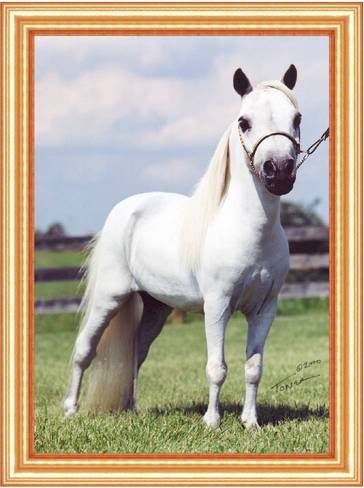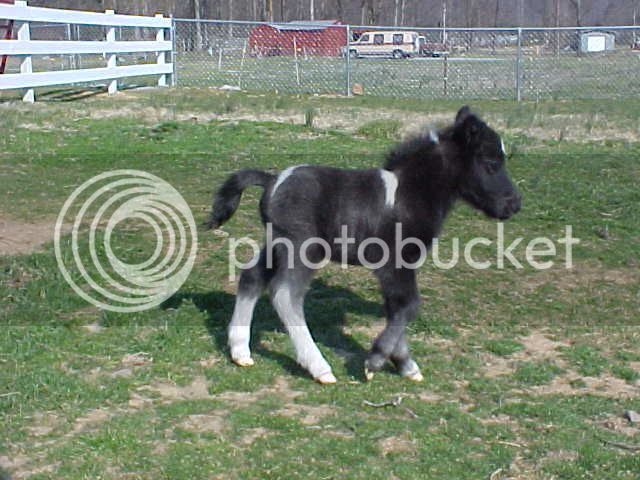I am usually not color blind as the conformation of the horse is most important to me. But, saying that, I do avoid a gray or pinto gray as they are so strong in producing that color and it seems to be very hard to sell.
It seems that the pet public love that color, but not the showing public.
I am a bit of a genetic freek and have studied genetics not only in college so many years ago, but also it is ongoing. I have bred Tibetan Terriers for over 30 years and can tell you everything about their colors. In horses, I am trying to get as good. I do know that the horse has to be a gray color in order to produce gray, as it is a dominant gene. I am not sure if two grays can only produce gray, that is one I would have to study.
Hello
I am afraid that I will be on this computer even more than before, but I do think this forum will be fun!!
Love your filly!!!!!!!!!!!!!!!!!!!!!!!!!! I can understand why you do not care what color she is!!
Hi!
Since we are talking about Grey's! I had to show off my grey weanling filly, Miss Maggie! I have a full sibling coming in '08 that I think will be the same since the mare produces' what ever the sire is. This filly will be small (30" at maturity) and she is just WOW! Who CARES what color she is!









